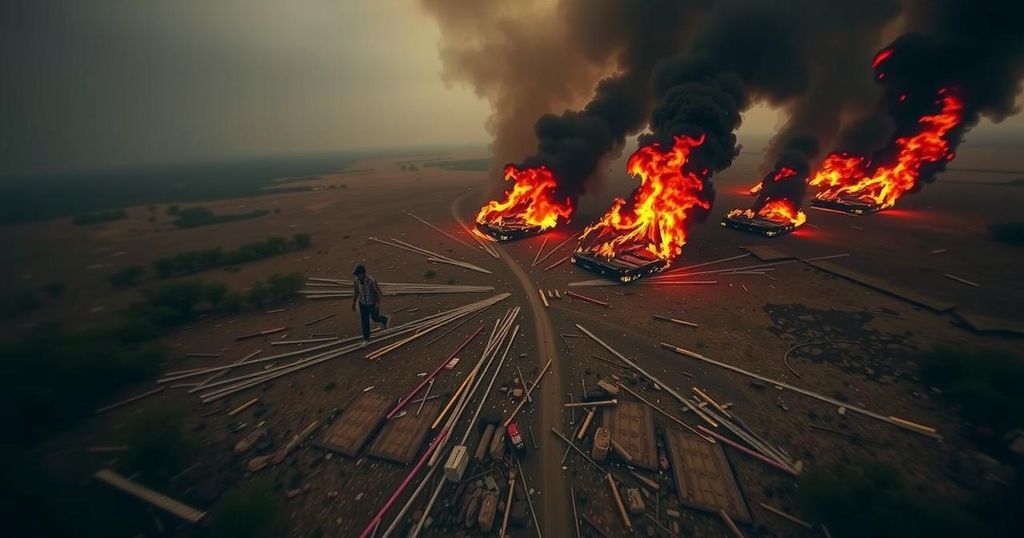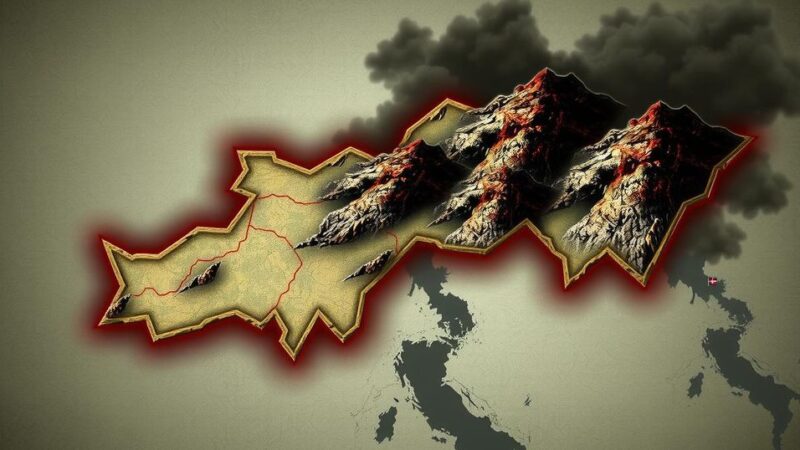Human Rights Watch has reported that Sudanese refugees in Ethiopia are at significant risk due to the ongoing clashes between Ethiopian federal forces and local militias in Amhara state. These refugees, having fled the civil war in Sudan, face violence and abuse from various armed groups. HRW highlighted the urgent need for effective protection and criticized the limited security measures in place in the refugee camps, which are situated near conflict zones.
Human Rights Watch (HRW) reported on Thursday that Sudanese refugees in Ethiopia are facing severe dangers due to ongoing clashes between Ethiopian federal forces and militias in the north-western part of the country. The conflict involves the Fano militia, active in the Amhara state, among others, which has engaged in violent confrontations with the federal government following its commitment to dismantle paramilitary groups beginning in April 2023. Although a state of emergency in Amhara lapsed in June, the unrest persists, particularly as federal reinforcements were mobilized in September. As Sudan grapples with a civil war involving the Rapid Support Forces and the military leader Abdel Fattah al-Burhan, many Sudanese have fled to Ethiopia, seeking refuge from the violence. HRW’s deputy Africa director, Laetitia Bader, highlighted that these refugees have been subjected to multiple forms of abuse, exacerbating their precarious situation. Bader stated, “These refugees have fled horrific abuses back home and urgently need protection, not further threats to their lives.” The HRW report details various abuses experienced by the refugees near two camps, including reports of murder, beatings, looting, kidnapping for ransom, and forced labor carried out by armed groups and local militias. This violence, which has escalated since June 2023, was corroborated by phone interviews conducted with 20 refugees residing in three camps and a transit center earlier in the year. Furthermore, HRW criticized the Ethiopian government for situating the refugee camps in areas vulnerable to conflict and providing only limited security, which has left refugees exposed to ongoing dangers. A displaced individual noted, “We wanted to be safe when we left Sudan, but the beatings and robbery (in Ethiopia) were a lot for us to take. My kids were crying.” The refugee continued to express frustration regarding the response from Ethiopian authorities, mentioning, “Every time the (Ethiopian authorities) promise something, nothing changes.” In response to HRW’s findings, Ethiopia’s refugee service acknowledged that the camps were indeed located near conflict zones while asserting that there was “adequate security” in place. The recent intensification of violence in the Amhara region has led to the closure of the Awlala and Kumer camps in July 2023.
The ongoing turmoil in Ethiopia’s Amhara state is deeply intertwined with both internal and regional conflicts. Since April 2023, the federal government has been constrained to engage with local militias such as the Fano, following the emergence of aggressive paramilitary forces. The Amhara region is notably significant, housing approximately 23 million individuals. The expiring of a state of emergency in June did not alleviate the strife as federal troops were subsequently deployed in response to rising tensions. Concurrently, Sudan is experiencing a civil war that has forced tens of thousands to seek safety across borders, particularly into Ethiopia. However, the situation for these refugees has proven hazardous, with numerous reports of abuse and crime against them by local militias and armed groups. This backdrop of conflict highlights the vulnerability of the Sudanese refugees and the challenges they face while seeking asylum.
The report by Human Rights Watch illuminates the perilous circumstances under which Sudanese refugees in Ethiopia currently live, exacerbated by ongoing clashes between Ethiopian federal forces and regional militias. It underscores the urgent need for protection, as these refugees flee from violence only to confront new threats to their safety. The inadequacies in security measures and the continued abuse by local armed groups necessitate immediate action from both humanitarian organizations and the Ethiopian government. In conclusion, addressing the plight of these refugees is paramount, as they seek refuge from one conflict yet remain endangered in another. Stakeholders must prioritize safeguarding these vulnerable populations and ensuring that their fundamental rights are upheld as they navigate these turbulent circumstances.
Original Source: www.newarab.com






